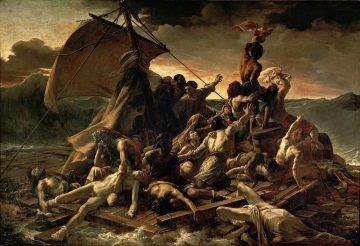Nicholas Christakis in Quillette:
 Survivor camps established after shipwrecks provide fascinating data about the societies that groups of people make when it’s left up to them, about how and why social order might vary, and about what arrangements are the most conducive to peace and survival. An archipelago of shipwrecks, formed over centuries, more or less at random, has resulted in people participating, unintentionally, in multiple trials of this experiment.
Survivor camps established after shipwrecks provide fascinating data about the societies that groups of people make when it’s left up to them, about how and why social order might vary, and about what arrangements are the most conducive to peace and survival. An archipelago of shipwrecks, formed over centuries, more or less at random, has resulted in people participating, unintentionally, in multiple trials of this experiment.
Shipwreck survivors have had a special hold on the human imagination for thousands of years, beginning at least since Homer crafted the Odyssey and stretching through when Shakespeare penned The Tempest, Cervantes described Don Quixote’s marooning, and more modern authors wrote Robinson Crusoe, The Swiss Family Robinson, and Lord of the Flies. In fiction, the castaway narrative tends to feature an idyllic state of nature, following Jean-Jacques Rousseau, or a state of anarchy and violence, following Thomas Hobbes—two philosophers with rather conflicting ideas about human nature.
Hobbesian examples abound in real-world shipwreck situations. Consider the crew of the Batavia, who in 1629 systematically planned the mass murder of women and children to conserve resources.
More here.
